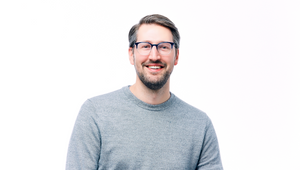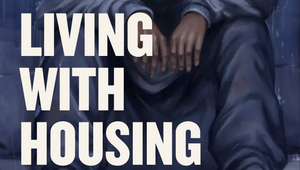
Your e-Reader Sucks: The Persistence of the Book

Working at a digital agency means I’m helping the world become a more digital place every day. It’s fortunate this is my job, because I do believe in the power of digital to make our lives better. Why is it, then, that I am still so drawn to the printed, paper book? (And I’m not alone; some 67 per cent of all books sold are still of the physical variety and in the first half of 2013, the increase in sales of adult hardcovers outpaced adult e-books 11.5 per cent to 4.8 per cent).
e-Readers should be winning. They’re portable, they hold thousands of books, they’re gloriously searchable and they provide unprecedented access to the world’s books. Not to mention an unfair price point for the e-books you read on them.
I believe books are here to stay primarily due to two things: dopamine and time.
Our brains are hardwired for distraction. Because learning quickly helped us survive in the wild, we’ve developed neural processes that reward new knowledge with shots of dopamine, a neurotransmitter that makes us feel alert, smart and happy. While this helped us evade predators on the savannah, these days it has us checking our phones constantly to see if someone liked our Facebook post or if we’ve racked up any new emails. At over 150 phone checks on average per day, we are a society of dopamine junkies. Like any addiction, this constant craving makes us uncomfortable.
Paper books don’t offer any dopamine-producing bells or whistles. They’re not connected. They are linear and straightforward. They give us relief from the dopamine chase and allow our brains to think deeply and develop deep connections. e-reader manufacturers tout multi-media, shared highlights and ‘social reading’ as the future of books. These are all focus-breaking fixes for us and they keep us from the sense of absorption that only a book can provide.
Books also offer us a sense of time, something we’re lacking severely these days. Douglas Rushkoff, in his book Present Shock, said: “when everything is rendered instantly accessible… the journey disappears, and all knowledge is brought into the present tense.” There’s a reason that so many photo organizing tools and social networks are concerned with timelines: they need to create them for us because we’re becoming worse and worse at creating our own. By outsourcing our memories to the cloud, we are giving up the narratives of our lives.
Paper books offer an escape from ‘present shock’ in ways that e-books do not. A paper book, which you can grasp in its totality all at once, gets heavier and thicker on the left and lighter on the right as you read it. The viewport of an e-reader is concerned only with the now; when you are done with the words on the screen, they are replaced with new words. The container stays the same. You move through a book; with an e-reader you get nowhere. While any book has a beginning, middle and end, paper books have a past, present and future.
Paper books also have a fixed geography. Each page is static and there. Studies have shown that we retain information better when we are able to locate it spatially. It’s why students these days still report a preference for paper books over e-books when it comes to schoolwork.
Paper books occupy a time and space that e-books only simulate. We can tell the difference. In our present shock, we just want our time back.
Ironically enough, the same digital connectivity and mobility that defines our present shock also enables our search for authenticity, human connection and discovery. Services like Yelp are allowing local businesses to flourish in ways not seen in decades. Social media is allowing local bookstores to market real recommendations to larger audiences than ever. Online book reviews are connecting legions of readers. Some argue that it’s never been a better time to be a reader. In fact, the number of independent bookstores has grown 20 per cent since 2009.
Technology won’t slow down. E-Readers will continue to put thousands of books in our hands instantly and self-publishers will become bestsellers, like E.L. James, whose Fifty Shades of Grey sold over a million digital copies before getting picked up by Vintage books and becoming a global phenomenon. But as our world speeds up and our time continues to contract, we will continue to seek balance in the pages of books.
As Stephen Fry famously tweeted, “Books are no more threatened by Kindle than stairs by elevators.”
Blake Wirht is Engagement Director at Huge. His session at SXSW Interactive, ‘Your eReader Sucks: The Persistence of the Book’, is set to take place in Austin Convention Center, Ballroom B on Saturday, March 14 at 5:00PM - 5:15PM.













